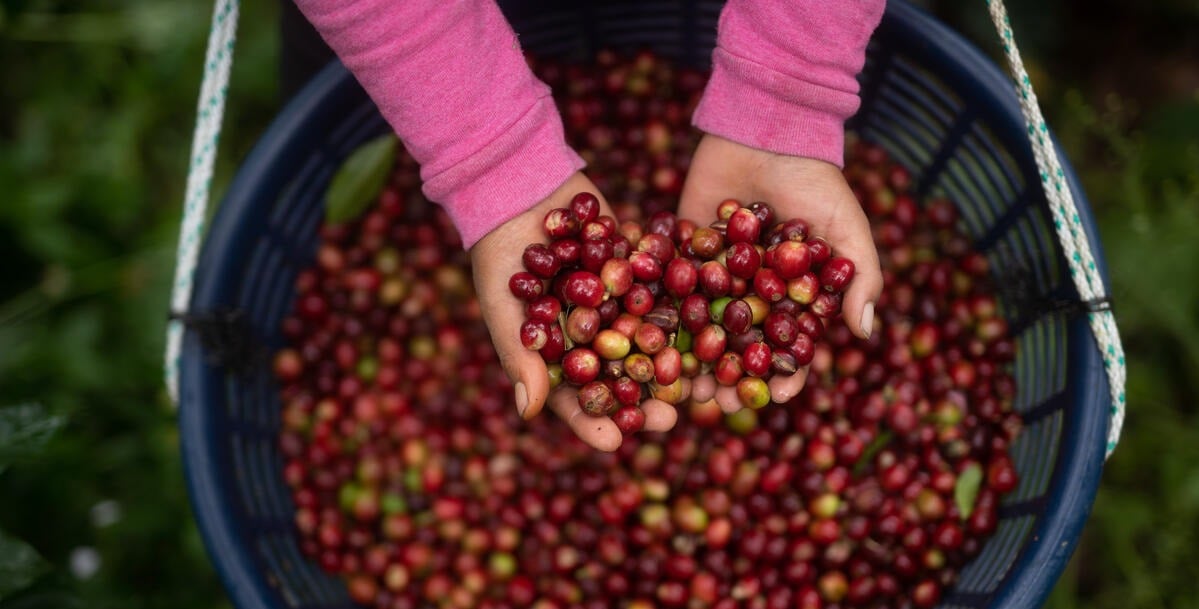November 26, 2025 | 11:25 GMT +7
November 26, 2025 | 11:25 GMT +7
Hotline: 0913.378.918
November 26, 2025 | 11:25 GMT +7
Hotline: 0913.378.918

Smallholder farmers account for 80 percent of global coffee production.
World coffee prices reached a multi-year high in 2024 - increasing 38.8 percent on the previous year’s average – mostly driven by inclement weather affecting key producing countries, the Food and Agriculture Organization of the United Nations (FAO) said today.
According to an FAO note on global coffee market trends, in December 2024, Arabica, the higher quality coffee favoured in the roast and ground coffee market, was selling at 58 percent up on a year ago, while Robusta, used mainly for instant coffee and blending, saw a price surge of 70 percent in real terms.
This marked a narrowing of the price differential between the two varieties for the first time since the mid-1990s.
Rises in 2025 possible
FAO said that coffee export prices may rise further in 2025 if major growing regions experience further significant supply reductions.
Key factors behind the recent price increase include limited export quantities from Viet Nam, reduced output in Indonesia, and adverse weather impacting coffee production in Brazil.
In Viet Nam, prolonged dry weather caused a 20 percent drop in coffee production in the 2023/24, with exports falling by 10 percent for the second consecutive year. Similarly, in Indonesia, coffee production in 2023/24 declined by 16.5 percent year-on-year on the back of excessive rains in April-May 2023 that damaged coffee cherries. Exports dropped by 23 percent.
In Brazil, dry and hot weather conditions prompted successive downward revisions to the 2023/24 production forecast, with official estimates shifting from an anticipated 5.5 percent year-on-year increase to a 1.6 percent decline.
Shipping costs a factor
Higher shipping costs were also found to be one of the factors contributing to the increase in world coffee prices.
Early data indicates that in December 2024, the increase in world prices translated into consumers paying 6.6 percent more for their coffee in the United States and 3.75 percent more in the European Union, compared to the same period in 2023.
“The high prices should provide incentives to invest more in technology and research and development in the coffee sector - which relies largely on smallholder farmers - to increase climate resilience,” said Boubaker Ben-Belhassen, Director of FAO’s Markets and Trade Division, adding that climate change is impacting coffee production in the longer term. FAO supports many of the coffee-producing countries to help farmers adopt climate-resilient techniques that also contribute to restoring biodiversity loss.
FAO highlights the importance of market transparency and encourages cooperation among all actors of the value chain to support sustainable growth in the global coffee sector and protect the livelihoods of millions of smallholder producers worldwide.
Key Figures
(FAO)

(VAN) An Giang promotes supply-demand connections, standardizes quality and builds value chains, creating a foundation for sustainable bird’s nest development and aiming to expand exports.
/2025/11/24/5339-4-nongnghiep-075331.jpg)
(VAN) Recently, the conference on 'Sustainable Fisheries Linkage Chain - Tilapia for Export' took place in Tien Hai commune, Hung Yen province.
/2025/11/21/4309-2-153400_128.jpg)
(VAN) Green and low-emission rice is paving the way for Vietnamese rice to enter high-end markets, marking the beginning of a transformation journey toward greening and elevating the national rice brand.

(VAN) ‘Right to Win’ outlines a national action plan that shapes a new vision for Viet Nam’s agriculture in an era of renewal and global integration.

(VAN) Lam Dong’s farmed sturgeon output this year is expected to reach 2,300 tons, worth VND 450 billion, affirming the brand’s position on the market.

(VAN) A surge in Ukrainian egg exports, largely driven by soaring sales to the UK over the last few years, has notably pushed up egg prices on the domestic market.

(VAN) The price of Arabica Catimor coffee in Quang Tri is currently at VND 25,000–27,000/kg (fresh cherries), the highest level ever recorded